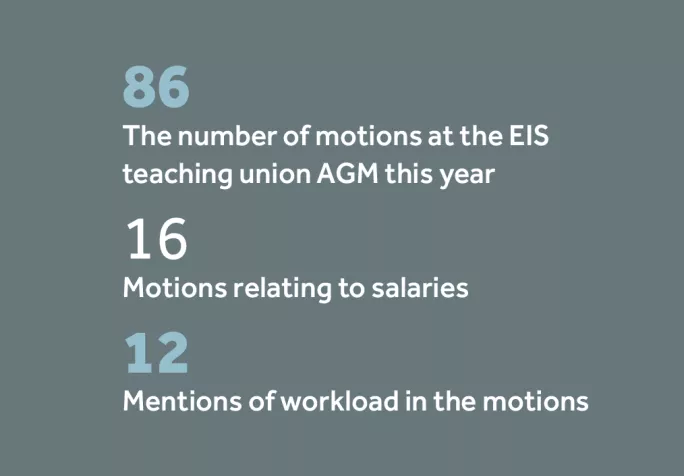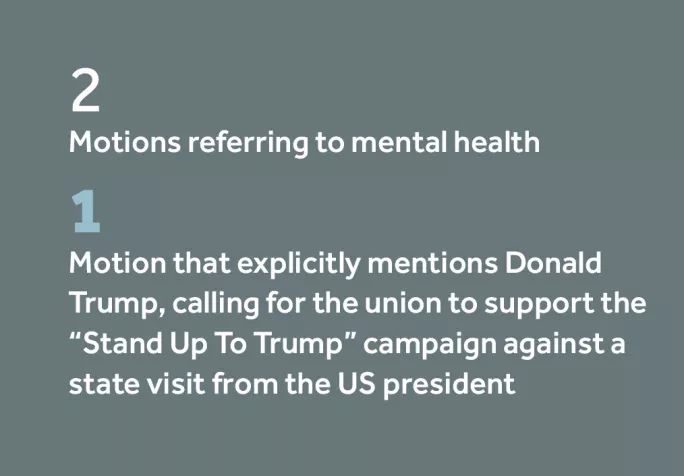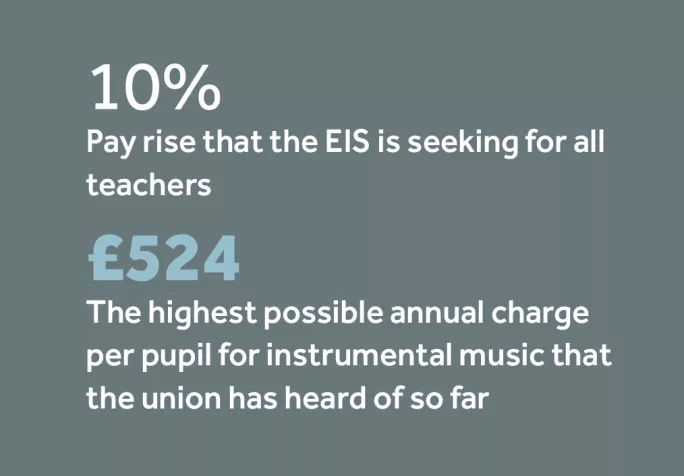‘What we do to teachers in Scotland is ridiculous’

If you want a primer on what’s happening in the world in 2018 - people’s fears, priorities and preoccupations - you just need to take a look through the 86 motions at this year’s EIS teaching union AGM.
Besides the perennial concerns you’d expect the union to reflect, you’ll also find a mirror held up to myriad topical issues that extend far beyond the classroom, from Donald Trump’s presidency to the #MeToo movement, from the privacy pitfalls of social media to society’s growing awareness about mental health.
Pay, of course, features prominently, but another P word runs like a thread through the AGM business that started in Dundee yesterday and will finish tomorrow. Growing concerns about poverty - in both pupils’ lives and in education budgets - crop up time and again, sometimes in surprising ways.
One motion from the Renfrewshire EIS branch, for example, calls for guidance to be prepared on dealing with infestations of bed bugs and fleas - local secretary Kenny Fella tells Tes Scotland that it aims to highlight “the link between any increase in infestations and the austerity agenda, with the associated poverty that this brings”.
Meanwhile, increasing concern about cuts to education budgets is prompting imaginative responses, such as the Edinburgh branch’s idea that local authorities could apply a “tourist tax” to boost their coffers. It has called for a scheme similar to one in Venice, amid fears over “huge” recent cuts in local authority budgets in recent years.
Edinburgh EIS secretary Alison Murphy says there is a “desperate need to increase revenue” and that a modest tourist tax in Edinburgh could bring in around £15 million a year, which would be “not nearly enough to compensate for shortfalls, but a significant help”. The city council itself said last week that a £1 charge per person per night would raise £11 million annually.
This year’s 86 motions is an unusually large number, which an EIS spokesman says might be partly explained by “increased activism at local level” and “growing levels of discontent on a range of issues”.
The union itself predicts that pay will be the dominant issue at the AGM. General secretary Larry Flanagan says: “Following more than a decade of austerity and real-terms pay cuts totalling more the 20 per cent, teachers have simply had enough and are not prepared to accept it anymore.”
He adds that the uniform 10 per cent pay rise that the EIS is campaigning for would start “to address the teacher recruitment and retention problems facing schools across Scotland”.
Another issue that the union chose to highlight in the run-up to the meeting was “catastrophic cuts and outrageous charges” to music. A motion from the Midlothian association calls for instrumental music provision to be protected in all schools across Scotland. The union questions why some local authorities can provide free music tuition for pupils while others are charging hundreds of pounds - or considering doing so - with figures of up £524 being reported.
EIS president Nicola Fisher, in her speech to the AGM yesterday, was expected to focus not only on pay, but also poverty, mental health and fears over the marketisation of education.
In a passage shared with Tes Scotland before she made her speech, she says: “To be honest, what we do to teachers in this country is ridiculous. We underpay teachers. We overwork them.
“We tell them, incorrectly, that they are part of a failing system. We tell them that what they are doing in the classroom is insufficiently ‘excellent’. We cut budgets and constantly expect them to do more with less. And then we’re surprised that 40 per cent want to leave.”
Tes Scotland reported in September on the proportion of teachers who were thinking about quitting (“40 per cent of Scottish teachers consider leaving their jobs in next 18 months”, bit.ly/40in100).



You need a Tes subscription to read this article
Subscribe now to read this article and get other subscriber-only content:
- Unlimited access to all Tes magazine content
- Exclusive subscriber-only stories
- Award-winning email newsletters
Already a subscriber? Log in
You need a subscription to read this article
Subscribe now to read this article and get other subscriber-only content, including:
- Unlimited access to all Tes magazine content
- Exclusive subscriber-only stories
- Award-winning email newsletters